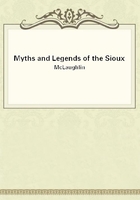
第43章 THE STORY OF THE PET CROW(2)
In vain did the chief try to get the crow to tell him the cause of his silence and seeming grief. The crow would not speak until the chief said: "Well, I will take a few of my warriors and go out and try to ascertain what has happened to cause you to act as you do."
Upon hearing this, the crow said: "Don't go. I dreaded to tell you what I know to be a fact, as I have heard it from some great medicine men. I was traveling over the mountains west of here, when I spied three old men sitting at the top of the highest peak. I very cautiously dropped down behind a rock and listened to their talk. I heard your name mentioned by one of them, then your brother's name was mentioned. Then the third, who was the oldest, said: 'in three days from today the lightning will kill those two brothers whom all the nations fear.'"
Upon hearing what the crow stated the tribe became grief stricken.
On the morning of the third day the chief ordered a nice tepee placed upon the highest point, far enough away from the village, so that the peals of thunder would not alarm the babies of the camp.
A great feast was given, and after the feasting was over there came in six young maidens leading the war horses of the two brothers.
The horses were painted and decorated as if for a charge on the enemy. One maiden walked ahead of the chief's horse bearing in her hands the bow and arrows of the great warrior. Next came two maidens, one on either side of the prancing war steed, each holding a rein. Behind the chief's horse came the fourth maiden. Like the first, she bore in her hands the bow and arrows of the chief's brother. Then the fifth and sixth maidens each holding a rein, walked on either side of the prancing horse of the chief's brother.
They advanced and circled the large gathering and finally stopped directly in front of the two brothers, who immediately arose and taking their bows and arrows vaulted lightly upon their war steeds, and singing their death song, galloped off amid a great cry of grief from the people who loved them most dearly.
Heading straight for the tepee that had been placed upon the highest point, adjacent to the village, they soon arrived at their destination and, dismounting from their horses, turned, waved their hands to their band, and disappeared within the tepee. Scarcely had they entered the lodge when the rumblings of distant thunder could be heard. Nearer, and nearer, came the sound, until at last the storm overspread the locality in all its fury. Flash upon flash of lightning burst forth from the heavens. Deafening peals of thunder followed each flash. Finally, one flash brighter than any of the others, one peal more deafening than those preceding it, and the storm had passed.
Sadly the warriors gathered together, mounted their horses and slowly rode to the tepee on the high point. Arriving there they looked inside the lodge and saw the two brothers lying cold and still in death, each holding the lariat of his favorite war horse.
The horses also lay dead side by side in front of the tent. (From this came the custom of killing the favorite horse of a dead warrior at the burial of the owner).
As the Indians sadly left the hill to return home, they heard a noise at the top of the tepee, and looking up they saw the crow sitting on one of the splintered tepee poles. He was crying most pitifully, and as they rode off he flew up high in the air and his pitiful "caw" became fainter and fainter till at last they heard it no more. And from that day, the story goes, no crow ever goes near the village of that band of Indians.